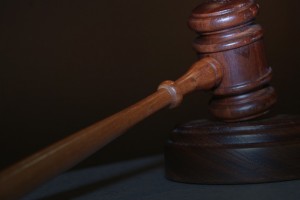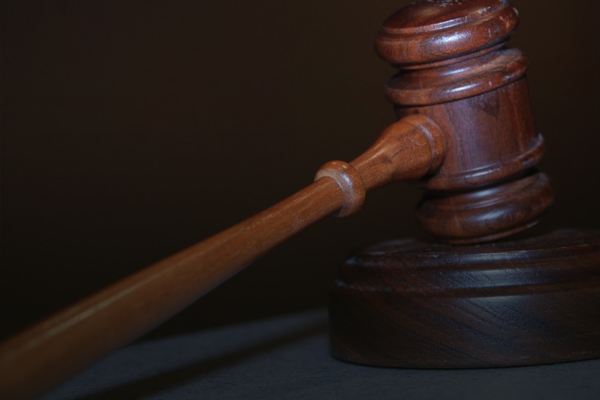
Make an Opening Statement Thoroughly
In criminal trials, attorneys begin by making opening statements to the jury. The crime under consideration will be thoroughly described and jurors will see photographs of the crime scene for the first time. It is a dramatic moment for many of the jurors, particularly if they’ve never been exposed to the level of violence that typically accompanies the kinds of cases I work as a detective. Prosecutors know they only get one chance at a first impression; this is not the place to stumble through your notes. They must know this portion of the presentation thoroughly and display the kind of confidence, passion and certainty that comes from exhaustively understanding the case at hand. In criminal trials, opening statements are limited to a simple outline of the facts of the case. Attorneys set the scene for the jurors, present the issues at stake and provide an overview of how the trial is expected to proceed. Jurors are told who their witnesses will be, how these witnesses are related to each other and the case, and what each is expected to say. While opening statements should be as persuasive as possible, they should not include “arguments”. Those will come later.
The Take-A-Way for Christian Case Makers:
Like trial attorneys, Christian Case Makers only get one chance to make a first impression. When defending the Christian Worldview to our friends, we need to remember the power of the opening. Is it intriguing and captivating? Is it relevant and accurate? Are we offering something that can be supported by the evidence and are we ready to provide that evidence later in the presentation or conversation?
Present Evidence Specifically
Once the opening statements have been made, it’s time to begin presenting the evidence to the jury. Much of this evidence will simply be the testimony of important expert witnesses. Some cases require DNA experts; others require experts in material evidence, coroners, doctors, or weapons specialists. The attorneys have the burden of deciding which types of experts will be needed. In addition, each attorney has to decide which pieces of physical or circumstantial evidence will be ‘highlighted’. Not every piece of evidence will have the same priority or emphasis; some will be more important than others. Each attorney must try to decide which evidence he or she will highlight and which evidence he or she will seek to minimize, and they have the burden of explaining why some pieces of evidence should be given greater weight than others.
The Take-A-Way for Christian Case Makers:
While you and I, as Christian Case Makers may be very familiar with the scientific or philosophical work that has been done on a particular topic, we have to be careful not to overload the conversation with too many “expert witnesses”. Many of us have not done the “heavy lifting” and examined the original sources for the evidence supporting the Christian Worldview. Instead we carelessly quote something we read once on a website or heard some speaker say. We need to familiarize ourselves with the evidence supporting our case and be responsible and accurate in citing these evidences. We’ve also got to be prepared to argue why some pieces of evidence should be given more weight than others.
Make a Closing Argument Convincingly
Once the jury has seen and heard the evidence, the attorneys are allowed to argue the case. In this closing portion of the trial, attorneys attempt to persuade jurors about the conclusions they ought to form. Attorneys remind jurors about the specific evidence presented earlier and try to convince jurors to embrace one interpretation or another. Here, attorneys are free to include hypothetical analogies, assess and argue about the credibility of witnesses, and discuss how various pieces of the puzzle fit together to make a compelling case. While an attorney might be limited in the opening to saying something like, “Witness Smith will testify that the Defendant left the house after the victim screamed,” it’s here in the closing that the attorney will argue the value of this statement by saying something like, “As we know from Witness Smith’s overwhelmingly compelling testimony, the Defendant left the house immediately after the victim screamed, and given the other facts of this case, the only reasonable conclusion is the Defendant was responsible for murdering the victim.”
The Take-A-Way for Christian Case Makers:
It’s not enough to present the evidence without taking the time to show how the pieces of the puzzle fit together. That’s one reason why I wrote Cold Case Christianity; I wanted to help Christian Case Makers understand the rules of evidence so they can utilize these simple principles to form an effective case. When we wrap up our presentations and conversations, it’s important to “connect the dots”. We need to do more than explain what the case looks like; we need to help people understand why the Christian worldview is the most reasonable inference from the evidence.
In every presentation or conversation, it is my goal to raise important questions that must be answered. I want to help my unbelieving friends see the logical inconsistencies of their worldview and leave them with a few important last thoughts to challenge and provoke them to dig deeper into the claims we’ve been discussing. Juries are ultimately asked to make a decision; the efforts of the attorneys are focused on this singular goal. Christian Case Makers can adopt their approach as we help our friends and family to assess the case and make a decision for Christ.

J. Warner Wallace is a Dateline featured Cold-Case Detective, Senior Fellow at the Colson Center for Christian Worldview, Adj. Professor of Christian Apologetics at Talbot School of Theology, Biola University, author of Cold-Case Christianity, God’s Crime Scene, and Forensic Faith, and creator of the Case Makers Academy for kids.
Subscribe to J. Warner’s Daily Email
J. Warner Wallace is a Dateline featured cold-case homicide detective, popular national speaker and best-selling author. He continues to consult on cold-case investigations while serving as a Senior Fellow at the Colson Center for Christian Worldview. He is also an Adj. Professor of Christian Apologetics at Talbot School of Theology, Biola University, and a faculty member at Summit Ministries. He holds a BA in Design (from CSULB), an MA in Architecture (from UCLA), and an MA in Theological Studies (from Gateway Seminary).

































Pingback: Pick Your Jury Carefully Before Making A Case | Cold Case Christianity
Pingback: Three Steps to Becoming a Lifelong Learner | Cold Case Christianity
Pingback: The Difference Between “Proactive” and “Reactive” Christian Case Making | Cold Case Christianity
Pingback: The Importance of Muscle Memory in Christian Case Making | Cold Case Christianity
Pingback: Your Motivation as a Case Maker Will Determine Your Message | Cold Case Christianity
Pingback: Are You Properly Motivated as a Christian Case Maker? | Cold Case Christianity
Pingback: How to Be a "One Dollar Apologist" (What I Learned This Year at CIA) | Cold Case Christianity
Pingback: Christian Case Makers: Young People Ought to Be Our Jury | Cold Case Christianity
Pingback: What Defensive Tactics Training Can Teach Us About Defending Christianity | Cold Case Christianity
Pingback: Christian Case Making, Discernment and Deciding What’s “Absolutely Necessary” | Cold Case Christianity
Pingback: If You’re A Christian Case Maker, Your Common Sense Is Sense Enough | Apologetics ForumApologetics Forum
Pingback: If You’re A Christian Case Maker, Your Common Sense Is Sense Enough | Cold Case Christianity
Pingback: What Defensive Tactics Training Can Teach Us About Defending Christianity | TLG Christian News
Pingback: Three Important Leadership Qualities for Christian Case Makers | TLG Christian News
Pingback: Christian Case Makers: Young People Ought to Be Our Jury | TLG Christian News
Pingback: Pick Your Jury Carefully Before Making A Case | TLG Christian News